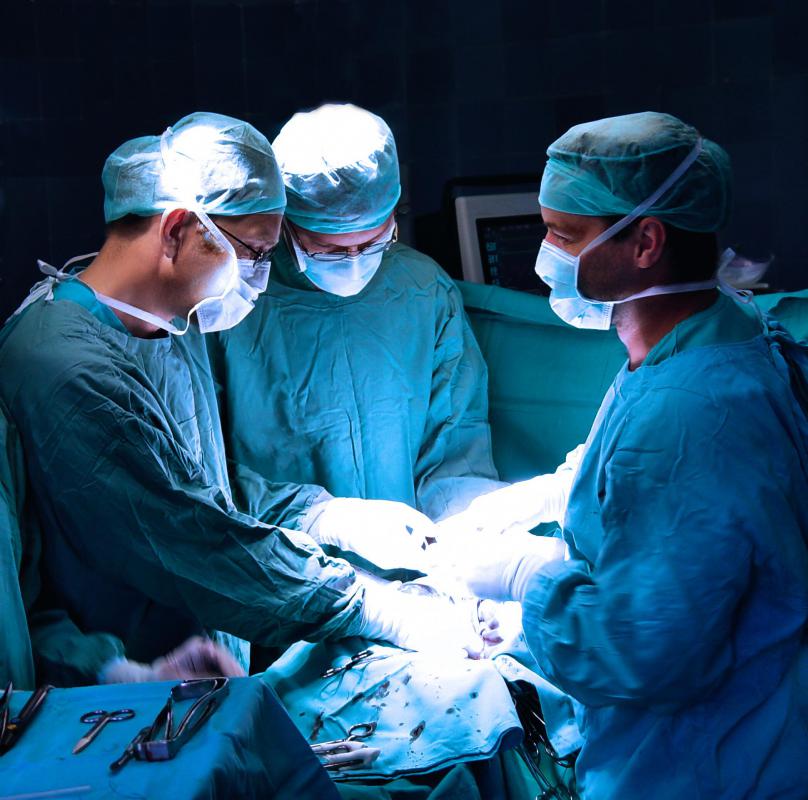At WiseGEEK, we're committed to delivering accurate, trustworthy information. Our expert-authored content is rigorously fact-checked and sourced from credible authorities. Discover how we uphold the highest standards in providing you with reliable knowledge.
What Should I Know About Vision Correction Surgery?
Vision correction surgery is a broad term used to describe a number of different techniques for fixing the eyes through surgical procedures. The most well-known form of vision correction surgery these days is Lasik eye surgery, but there are many others, including refractive surgery, vitreo-retinal surgery, oculoplastic surgery, and eye muscle surgery.
The Lasik form of vision correction surgery has surged to popularity in the last few years, as procedures have improved and prices have dropped. It can be used to correct hyperopia, astigmatism, and myopia. The term is short for laser-assisted in situ keratomileusis, and involves using lasers to cut the eye to repair problems with it. The first Lasik patent dates back to 1989, and for the first few years Lasik was not considered an ideal form of vision correction surgery because of the high cost and relatively high degree of complications.

Modern Lasik, however, is one of the safest and most affordable forms of vision correction surgery. Modern equipment is fast, highly optimized, and very safe. Additionally, while traditional Lasik relied on a manual incision to lift up a flap in the eye, modern Lasik can use a laser to make the incision as well, reducing complications that can arise from physical contact with the eye. More advances in Lasik technology are constantly being developed, with advanced technologies like sub-Bowman’s Keratomileusis, FLIVC, and wavefront-guided PRK all offering opportunities for faster recoveries, cheaper techniques, and less risks of complications.

Another type of vision correction surgery is known as radial keratotomy, and involves making a number of incisions in the eye with a diamond knife. The incisions made in this type of vision correction surgery are usually quite deep into the cornea, and this leads to an increased risk in infection. As a result, radial keratotomy is not as popular a form of vision correction surgery as Lasik, although there are still a number of situations where it is recommended to patients. Side effects of radial keratotomy include partial blindness at higher altitudes, and various forms of lens flare when struck by bright lights, as when driving.

For all types of vision correction surgery, proper care is incredibly important. The eye is a very delicate organ, and any sort of botched operation can cause severe complications, and in some cases partial or total blindness. As a result, it’s important to make sure to go with a reputable ophthalmologist with a good history of surgery, rather than simply the most affordable provider.

Vision correction surgery makes use of anesthesia, usually a local anesthesia, so that the patient feels no pain and so that the eye becomes immobilized. Most vision correction surgery is actually quite fast, with modern Lasik taking less than a minute of cutting for each eye, and the entire operation being complete in around half an hour for two eyes. Recovery is also quite rapid, and most patients can be expected to be up and ready to see again in less than a day, with a few follow up visits to the doctor to make sure everything is going fine.
AS FEATURED ON:
AS FEATURED ON:
















Discussion Comments
There are lots of factors to be kept in mind when going take any vision correction surgery. This site is helpful to know about these surgeries like about its benefits, risks, cost and requirements. It is better to make a decision after going through all these points.
Post your comments